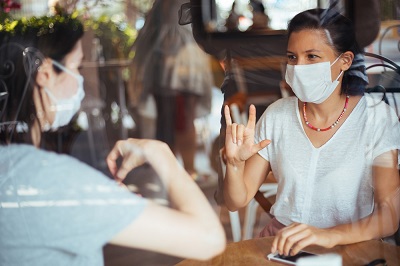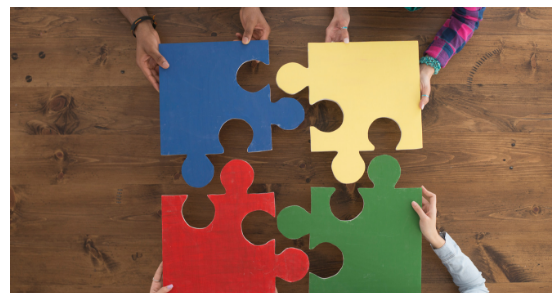Introduction
Disabilities, Access, and Inclusion cluster lead Deborah Stienstra takes an intersectional approach to disability studies. Cluster projects include livelihoods and disabilities, disability-inclusive development, women with disabilities, and Indigenous approaches to disabilities. The cluster provides knowledge kits for inclusive practices and actionable tools. Further, the cluster considers Canadian and international disability legislation and seeks to evaluate and inform social policy to facilitate the inclusion of workers with disabilities. Disabilities, Access, and Inclusion highlights the importance of the participation of people with disabilities, particularly the participation of women with disabilities.
Current and Future Projects:
Reimagining Livelihoods
This outreach project emerged from the Disability and Livelihoods in Canada partnership and builds from the livelihoods framework that was used to collect and analyze data. The Reimagining Livelihoods project shares results from community-engaged research on different forms of livelihoods, and how they shape the experiences of diverse people in Canada and around the world. The project hosted a Livelihoods Forum in August 2023, and is developing a multimedia platform to provide an opportunity for ongoing engagement and contributions about livelihoods (www.livelihoods.ca).
Canadian Feminist Disability Coalition
View the Canadian Feminist Disability Coalition project web page
The Canadian Feminist Disability Coalition–la Coalition féministe canadienne sur le handicap (CFDC-CFCH) was a 30-month project established by the Live Work Well Research Centre in November 2021 in partnership with the DisAbled Women’s Network of Canada (DAWN-RAFH Canada). The CFDC aimed to build the leadership and advocacy skills of diverse women and girls with disabilities to become agents of change for their rights in Canada, as well as creating opportunities for collaboration and connection. As of March 19, 2024, the project has moved to DAWN-RAFH Canada where the network will continue as the Hummingbird Feminist Disability Coalition (HFDC).
Engendering Disability-Inclusive Development
View the EDID-GHDI website in English. / Voir le site EDID-GHDI en français
The Engendering Disability-Inclusive Development - Genre, handicap et développement inclusif (EDID-GHDI) partnership is a seven-year project funded by a SSHRC Partnership Grant. The project encompasses research in four study countries—Canada, Haiti, South Africa, and Vietnam. Building on established relationships with civil society organizations, policy makers, and researchers, the project aims to improve the lives of diverse girls and women with disabilities by (1) uncovering, co-creating, and mobilizing knowledge about the struggles for and progress toward disability-inclusive development and (2) engendering and implementing disability-inclusive development policies that are critical to removing barriers and creating the conditions for inclusion and participation.
Read the EDID project summary / Lire le résumé du projet partenariat GHDI
Read the EDID annual report 2022-24 / Lire le rapport annuel du project GHDI 2022-24
Read the EDID annual report 2021-22 / Lire le rapport annuel du projet GHDI 2021-22
Read the EDID annual report 2020-21 / Lire le rapport annuel du projet GHDI 2020-21
Disability Inclusion Analysis of Lessons Learned and Best Practices of the Government of Canada’s Response to the COVID-19 Pandemic
In response to the COVID-19 crisis, this project assisted Employment and Social Development Canada in identifying good or best practices and lessons learned from the response to the COVID-19 pandemic in Canada. Conducted in partnership with the DisAbled Women’s Network of Canada (DAWN), this research helps us better understand how diverse people with disabilities in Canada have been affected by the COVID-19 pandemic and the effects of government COVID-19 measures on diverse people with disabilities in Canada. The project team gathered and analyzed information from a range of sources, including government policies, websites, and media; they also conducted interviews and focus groups with policy makers, community organizations, and disability leaders from BC, Alberta, Ontario, and Quebec.
Read the Disability Inclusion Analysis final report and factsheets.
Disability and Livelihoods in Canada
View the Disability and Livelihoods in Canada project web page
Livelihoods describe means to secure the necessities of life -- through paid work, caregiving, volunteering, market gardens, fishing, artistry, trading, among others. Livelihoods are not only the capabilities, assets and activities required for maintaining life, but also the ability to sustain these in the context of stress and shocks, over time and for future generations, and contribute benefits at the local and global levels over the short and long term. With employment rates among people with disabilities in Canada at less than 50 percent, and a resultingreliance on government transfers, we ask: how do people with disabilities in Canada survive, let alone thrive? People with disabilities continue to respond imaginatively by finding alternatives to paid work to sustain themselves and their families. This disjuncture between policy and lived experiences suggests an important and under-explored research area. The Disability and Livelihoods partnership will (1) examine how livelihoods interact with diverse experiences of disability in Canada and (2) begin to develop a strong, practical, and conceptual livelihoods approach to work and families research.
This research projects is composed of three pilot projects and two overarching circles that will be combined to look at different approaches to understanding livelihoods of people with disabilities.
The three pilot projects are:
- Pilot 1: Disabilities and Volunteering in Guelph-Wellington (John Beaton, Family Relations and Applied Nutrition)
- Pilot 2: Disabilities, Arts + Artistry in Canada (Carla Rice, Family Relations and Applied Nutrition)
- Pilot 3: Young Women with Disabilities and Pre-employment Supports in Montreal (Deborah Stienstra, Political Science)
The two overarching circles are
- Livelihoods Circle (Theresa Lee, Political Science; and Deborah Stienstra, Political Science)
- Knowledge Mobilization Circle (CESI; Deborah Stienstra, Political Science)
Transforming Knowledge and Activism for Inclusion Through Engaging Girls and Women with Disabilities in Vietnam in Participatory Research
Little is known about the situation for girls with disabilities in the global South. Despite growing research in disability studies and girlhood studies, there is still a gap in knowledge in relation to the inclusion of girls with disabilities in the global South. Building on a pilot project on educational rights for girls with disabilities in Vietnam, this study is developing theoretical and methodological interventions to engage and advance knowledge on educational rights for girls with disabilities in Vietnam as a part of global South.
It is a timely response to the exclusion of disabled girls and women from research production. Its interdisciplinary and participatory framework engages disabled girls in claiming their rights, while at the same time building capacity of disabled women to become co-researchers with the research team. As such, the study benefits academics and activists for disability rights, children’s rights, girls’ education and inclusive education. It connects academics and activists through inclusive and community-based methodological approaches. This study will also be of benefit for the disability community, the UN, and NGOs through its advocacy work for disability rights and children’s rights in global contexts.
Watch the trailer for "Our Journey," a film developed by girls and young women with disabilities in Vietnam.
Cluster Leader:
Or contact us for more information.


